|
***Warning*** If you haven't yet read Legionary: The Blood Road, there are spoilers ahead (so perhaps bookmark this page to read later if you have still to read the book) On the 3rd October 382 AD, after nearly six years of battle, treachery and broken oaths, the Eastern Roman Empire and the Goths met - for once with swords sheathed - in a parley tent somewhere in Thracia. At long, long last, peace talks began... The nature of this peace deal is hotly-debated right to this day, and rightly so - because the end of the Gothic War was effectively the catalyst for many torrid events that would shake Europe for centuries afterwards - the rise of the Visigoths, Alaric, the sack of Rome in 410 AD… the Fall of the West in 476 AD can even be attributed to the seminal talks in 382 AD. So let's look a little more closely at what exactly happened that fateful day... How did the peace talks come about?Did it follow a Gothic capitulation in battle, or was it a pragmatic end to the war agreed by two exhausted sides well-aware that they were locked in an unwinnable struggle? What evidence we have suggests that the empire was now desperate for the war to end by any means necessary. This is evident in the changing tone of the orator Themistius' speeches: in the earlier years of the war he boomed ‘The Goths will quake. Our mighty soldier-emperor will draw every able man together, our miners will bring iron for them and we will slaughter the barbarian!’, only to change tack in 381, preaching instead that ‘It is an emperor’s job to govern, not to fight...' in an effort to manage the expectations of the imperial populace who had witnessed many reverses against the horde. After the talks, Themistius did the classic 'waving fist angrily after the bad man has vanished round the corner' routine, by claiming that during the peace talks, the Goths wept and clung to Emperor Theodosius’ knees, begging for mercy. In truth the Goths were still very potent at the time of the parley, and in any case, Emperor Theodosius was faraway in Constantinople at the time of the meeting, so it is highly unlikely that they were hugging his knees from (unless they had unfeasibly long arms). Who oversaw these crucial discussions?We have only sketchy details of those present. It seems that General Saturninus and Richomeres were there on the Roman side. There is no record of a named leader speaking for the Goths. Indeed, the title ‘Iudex’ (judge or dictator) was never again used by any Gothic force. However, we know of two prominent Goths, present in the horde at that time, who would go on to become rather famous in future years: Alaric and Fravitta. Given Alaric’s tender years (he would only have been a young teenager at the time), it is unlikely to have been him. Fravitta would go on to display a very pro-Roman attitude in the years to follow, so it seems more plausible that he could have been the man negotiating for the Goths. Were all of the Goths represented at the talks, or just some?We also do not know how far-reaching the deal was: did it encompass every Gothic tribe roaming in imperial territory, or was it a minor treaty agreed with mere splinters of the Gothic number? The fact that the war did not resume afterwards leads me to believe that it covered most of – or at a least a critical mass of – the Goths in Thracia. Of course, we must remember that great numbers of Goths remained north of the Danube, under the Hunnic yoke (and these subjugated tribes would later become the Ostrogoths). Where did the talks take place?
What exactly did the Romans and the Goths agree to that day?The exact nature of the peace deal is a highly-contentious matter. There are two broad camps in the debate: Some historians, such as Halsall and Wyman, claim that the peace deal came in the form of a ‘coloni’ arrangement – i.e. a full surrender of the Goths, who went on to become fully integrated Roman citizens, paying taxes and serving in the legions as regular soldiers. Other historians such as Gibbon, Heather, MacDowall and Friel, argue that the peace deal took the form of a ‘foedus’ – i.e. more like a treaty between equals. In this arrangement, the Goths were not full imperial subjects, and were exempt from taxes. Their only obligation was to muster for war when the Roman Emperor called upon them, but not as legions: instead, they would march with their own tribal generals, retaining their own military traditions. More, they were granted Roman lands to farm as their own. Here are Gibbon's words on the matter of what the Goths got out of the deal:
If true, this was a watershed moment – the first time in the empire’s history that it had settled an entire people within its borders and allowed them almost complete autonomy. This second theory is certainly more compelling from the storyteller’s point of view, but that alone is not what guides me to favour this option. Surely the empire – having suffered defeat after defeat to the horde since the Battle of Adrianople – would have been under huge pressure to agree peace, even at a high cost? The 4th century AD Bishop Synesius writes that the post-382 AD Goths settled in Thracia were 'brought up differently, in an un-Roman fashion'. Pacatus, the Latin panegyrist, describes how the Goths of fighting age were mobilised en-masse as opposed to being stationed in barracks like regular legions. Heather explains how Gothic bands were attested as serving in subsequent campaigns, but were not listed in the Notitia Dignitatum (a collection of sources detailing the imperial regiments of the later 4th century AD), which further suggests they were mustered and disbanded as and when needed when the emperor called upon them. Halsall – firmly in the ‘coloni’ camp – even concedes that there were irregularities about the Gothic terms and that they might not have been required to pay taxes 'in the normal way'. In the Legionary series, I firmly plump for the foedus theory. Whether you agree with my take on this matter or not, it is indisputable that the Goths settled under this peace deal retained enough of their identity and culture to become, over time, the Visigoths. The rest, as they say, is history... Thanks for reading! sign up to my newsletter at the foot of the page, or try a copy of The Blood Road now!
0 Comments
Leave a Reply. |
AuthorGordon Doherty: writer, history fan, explorer. My Latest BookArchives
March 2023
Categories |
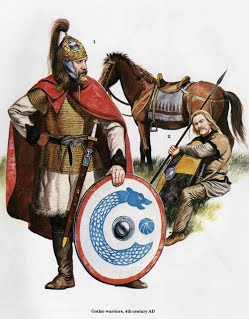
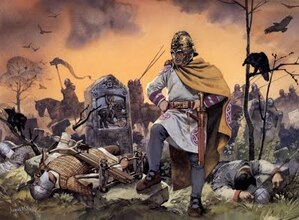
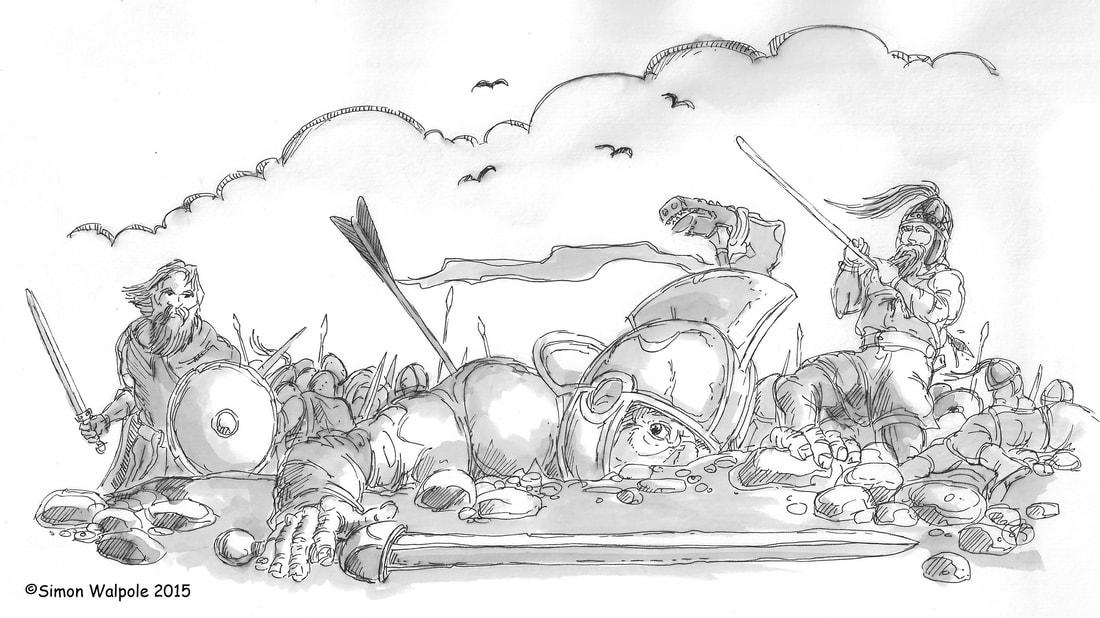
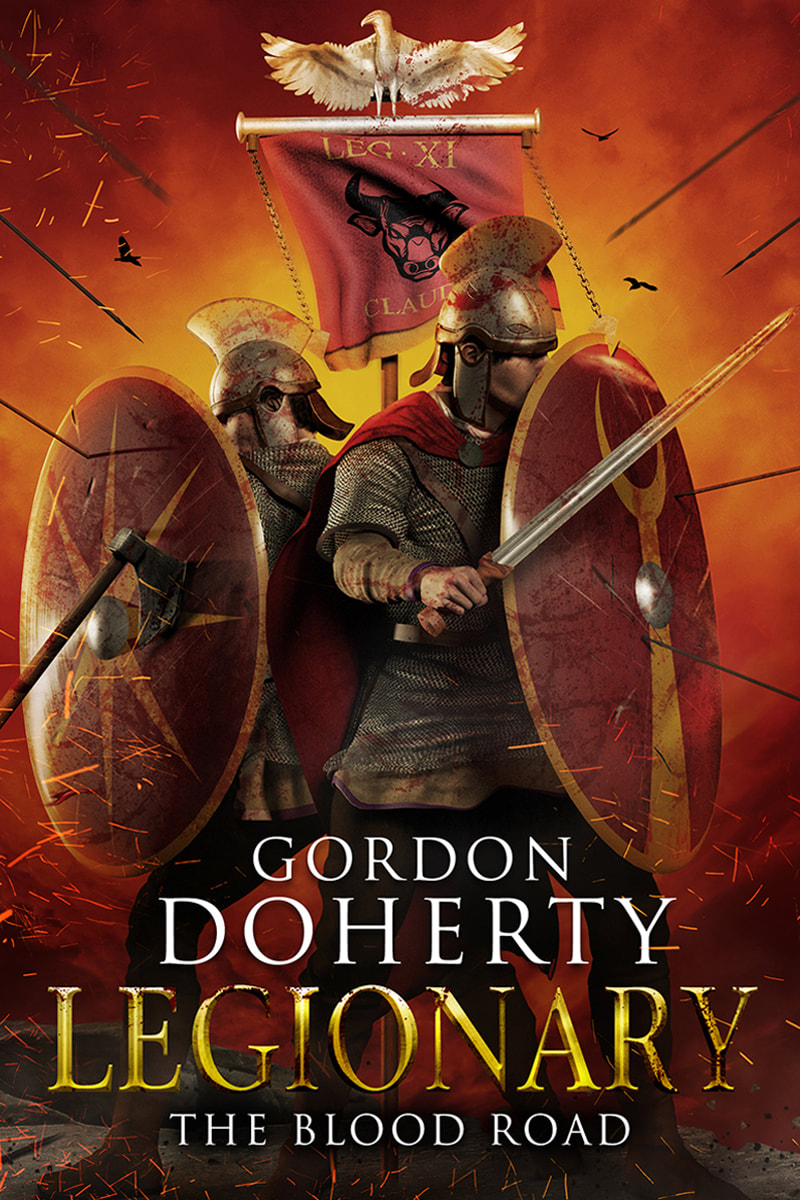

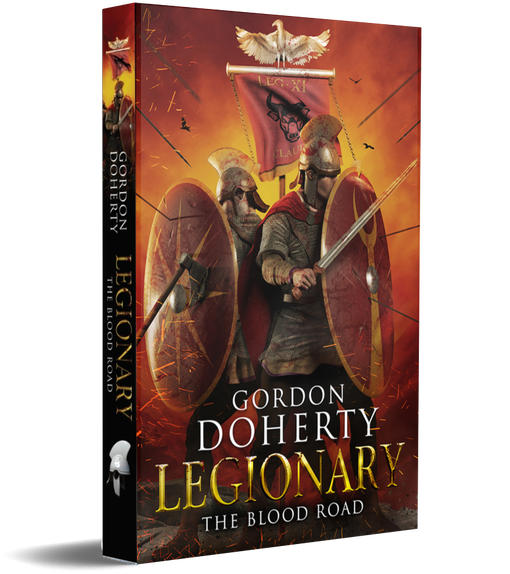

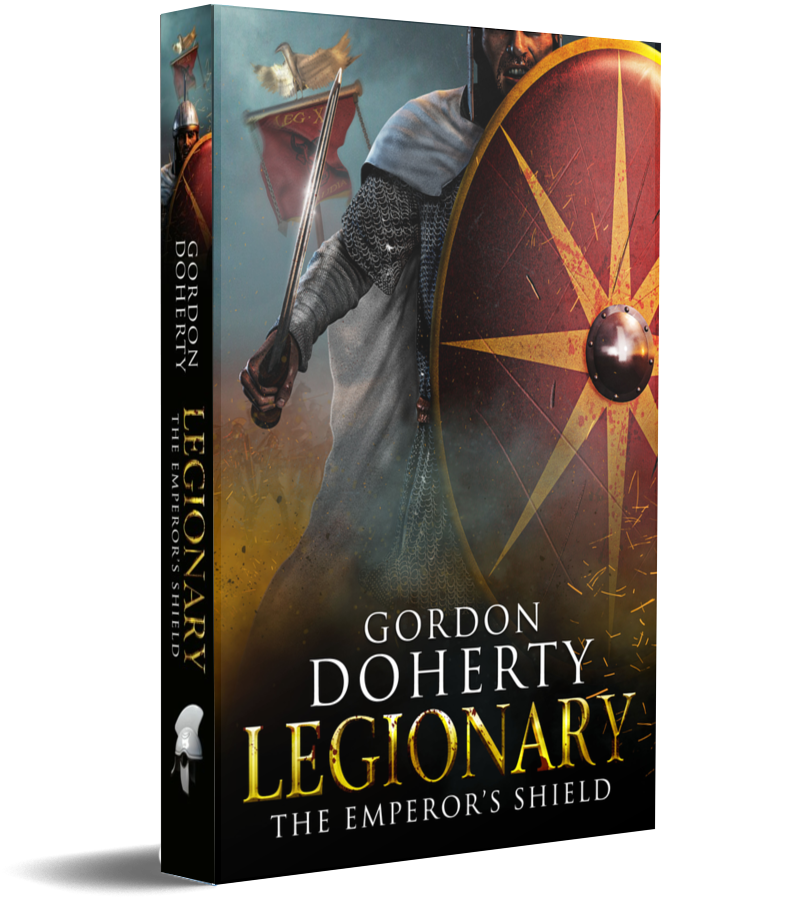
 RSS Feed
RSS Feed